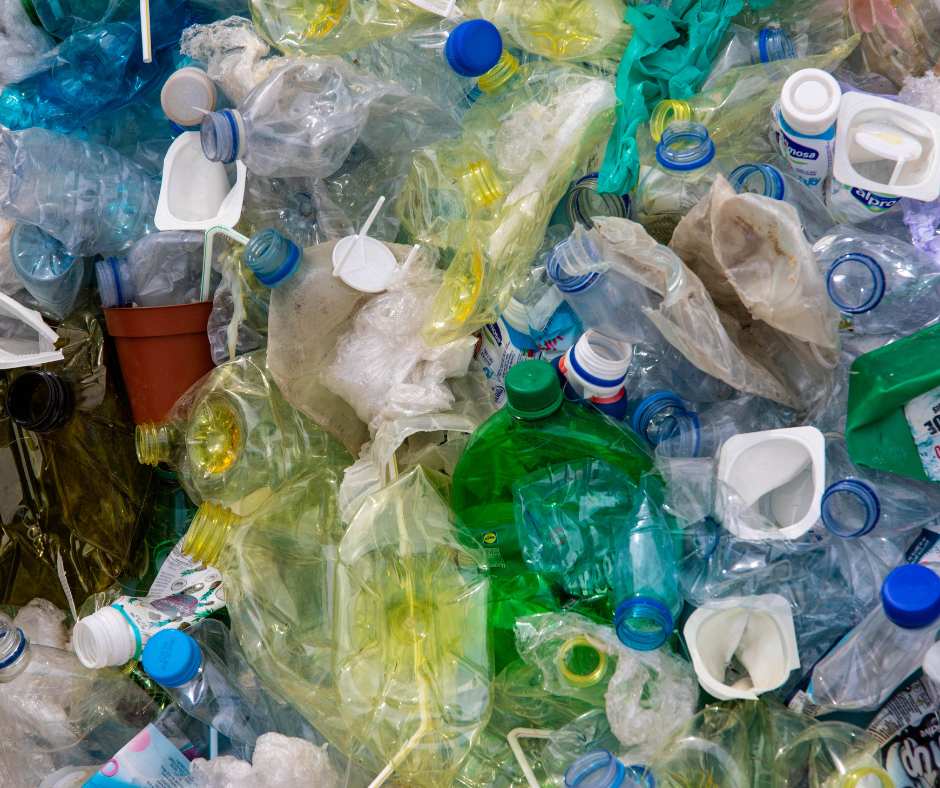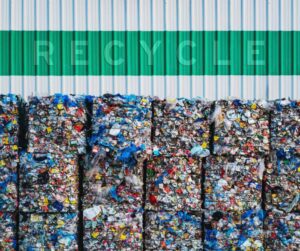The well-known proverb “One man’s trash is another man’s treasure” has never been truer than on Global Recycling Day, Saturday 18 March 2023.
With over 8.3 billion metric tons of mostly single-use plastics manufactured globally since the start of its large-scale production in 1950, and only 9% ever recycled, the imperative to Reduce, Reuse and Recycle plastic has never been more urgent. According to the Bureau of International Recycling, global plastic consumption is set to rise to 620 million tons by 2025, 832 million tons by 2040 and 1.23 billion tons by the midpoint of the century. Currently, over two-thirds of plastics ever made are discarded, polluting our land and oceans, and threatening both human and marine life. These unsustainable patterns of consumption and production have been identified as one of the root causes of the triple planetary crises of Climate Change, Biodiversity Loss and Pollution.SUSTAINABLE DEVELOPMENT
For the first time ever, in 2020, the anthropogenic mass – the mass of man-made objects not demolished or taken out of service – estimated at around 1,154 gigatons, exceeded the entire mass of all life on Earth. Plastic equalled eight gigatons, more than double the weight of the entire animal kingdom! Fortunately, organisations such as the United Nations and Global Recycling Foundation recognise the urgency to improve resource efficiency, reduce waste generation and stimulate the circular economy. This can only be achieved by a co-ordinated and co-operative approach. The United Nations identified “Responsible Consumption and Production” as one of 17 Sustainable Development Goals to protect people and the planet. Amongst various critical global goals including food security, health and wellbeing, environmental management and economic prosperity for all, Goal 12 specifically seeks to regulate the production, use and disposal of products in a more ecologically sustainable manner. At the World Summit on Sustainable Development in September 2022, governments reaffirmed the importance of solid waste management through targets, legislation and incentives. Paragraph 12.5 states the need to substantially reduce waste generation by 2030 through environmentally sound management of waste through prevention, reduction, recycling and reuse, wherever possible. Paragraph 12.7 discusses the need to promote public procurement policies that stimulate recycling in order to reduce the need to extract raw materials from the earth. Better waste management can only be achieved by building an effective after-use economy with sufficient collection and reprocessing, thereby reducing leakage into our natural systems.
TRASH TO TREASURE
The market value of the global plastic recycling industry is expected to increase to an estimated US$60 billion by 2027, as more and more governments, businesses and organisations realise the value of society’s commercial and domestic waste. Themed “Creative Innovation”, Global Recycling Day aims to celebrate and showcase #RecyclingHeroes that turn ”trash to treasure” by incorporating this formerly under-appreciated ‘Seventh resource’ in their production inputs. These companies and individuals not only reduce the mountain of plastic waste polluting our oceans and destroying its marine life, but simultaneously minimise their dependence on the earth’s limited natural resources. And not a moment too soon!One such pioneering company is Eva-Last which produces sustainable composite building materials made from recycled plastic and fast-growing bamboo.
Not only does their range of composite decking, cladding and railing beautify the built environment, but they actively preserve the natural environment and reduce waste!RESPONSIBLE CONSUMPTION AND PRODUCTION
From the outset in 2006, Eva-Last has taken their responsibility of “Responsible Consumption and Production” to heart: By ‘consuming’ recycled and renewable resources as inputs in their production process, Eva-Last have succeeded in producing a truly sustainable and beautiful range of bamboo composite building materials that are “Inspired by Nature, Designed for Life”. Whoever said recycled or renewable needs to be ugly? As their slogan suggests, Eva-Last draw inspiration from the colours and textures of nature, reproducing the natural beauty of wood without contributing to deforestation. In fact, they’ve saved more than 2,358 trees (and counting!) and removed over 31,043 tons of plastic waste to date this year. Their annual production of bamboo composite building materials prevents the equivalent of 800 million two litre plastic bottles from entering landfills and oceans annually! The bamboo component, which grows up to fifty times faster and releases 35% more oxygen than hardwoods, produces an attractive, durable and eco-friendly composite with only two percent waste. What’s more, they’re built to last. Longer lasting means less replacement, less replacement means less waste. Its’ natural anti-bacterial properties, combined with the UV-stability of the recycled content, prevents insect damage and harmful chemical coatings or treatments usually needed to protect against extended exposure to Mother Nature. Their creative combination eliminates the construction industry’s insatiable need for actual timber which is detrimental to the environment – both in terms of threatening our oxygen supply and natural habitat, as well as destroying Earth’s natural beauty. Aesthetically pleasing and engineered for performance, this collection of products effectively achieves the dual purpose of beautifying the built environment whilst impactfully removing waste and reducing consumption of natural resources.







